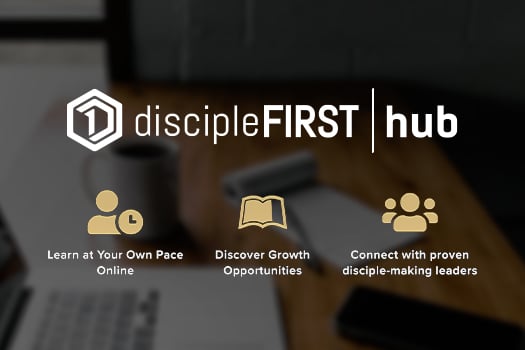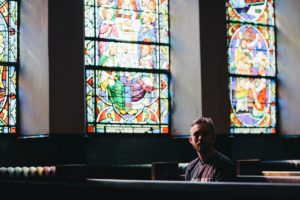The church with a severe case of “ethnicitus”
I’ll never forget sitting behind my desk staring at the report in front of me. It was my first time to be a lead pastor. I had come to this church from a growing suburban church in Texas that had plenty of leaders and resources, and now I was leading an inner-city church in Oklahoma City facing all kinds of challenges.
The church had been static for almost a decade with little growth. All the while, the neighborhoods around the church had slowly begun to change, becoming more ethnically and socio-economically diverse. Before long, it became obvious that the people in the pews on Sundays didn’t look like the people in the community around the church Monday through Saturday.
At first no one really noticed the changes. The church seemed resilient, impervious to the changing climate. But over time, the cracks began to surface. Families were choosing to move out of the neighborhood and into the suburbs for better schools. Once that happened, it was just a matter of time before they would leave the church to find one closer to where they lived.
I could almost set my watch and predict when certain families would leave. By the time their kids moved into middle school, they were all but gone. Every family that left felt like a knife in my heart. There was a slow leak, a constant drain of people quietly leaving the church.
On the other hand, because the people in our church were different than the community, it became increasingly hard to get people in the community to come into the church. They saw the church as a “rich, white, and professional church,” not a place where they would fit in. No matter how hard we tried to change that perception, people in the neighborhood never seemed to stick.
Our members who lived in the suburbs and had decided to stay were faithful and devoted to the ministry, but they could never seem to get their neighbors and friends to come to church with them. No one wanted to go into “that part of town” to go to church.
You can see the problem. With people quietly leaving for the suburbs, and both the people in the community and the suburbs unwilling to come, the church was on a slow fade. No program was going to fix this problem. It wasn’t a matter of music style. It wasn’t an issue of better preaching. It wasn’t even an issue of facilities.
Many people would say, “Craig, it’s not you or the church. We love it here. But we just have to make this move for our kids.” As a young pastor, it seemed to be an unfixable problem. A knot I couldn’t unravel. I spent many sleepless nights praying for God to give me direction. I didn’t relocate my family to a new state and choose to lead this church only to watch it dwindle on my watch.
So the decision was made to hire a consultant. After an extensive survey of our people and what seemed like hundreds of hours of intense meetings, his report was sitting on my desk. I took a deep breath, and turned the first page.
In one sense I was expecting the worst— some kind of final verdict that would say all hope was lost. On the other hand, I had a sense of hope that maybe, just maybe, this guy was going to see something I had missed and would give me some quick and easy steps out of this situation.
His conclusion was that the church had a severe case of “ethnicitus”—a cultural and ethnic dissimilarity between those in the church and those in the community. I knew that already. What I didn’t know was how to fix it. The next words were like a punch in the gut. Ethnicitus is terminal.
In his opinion, the church was swimming upstream against the current of social change and it was only a matter of time before it slowly tired out and quit. Only a total relocation could save the church. We had already considered a relocation option, but it wasn’t feasible.
If you plotted our church membership on a map, it would look like a shotgun pattern with the church in the middle. Our membership was perfectly positioned around the church. A move in any direction would be moving away from three-quarters of our people.
To add to that, a church in our area had recently relocated and it was a disaster. The church eventually split over the decision and ended up weaker than it was in the first place. The people in our church weren’t open to relocation.
Closing the report, I buried my face in my hands. What was I going to do? For the next few weeks, I cleared the calendar to spend time praying, fasting, and seeking God. I spent time alone. I gathered our staff for early morning prayer meetings.
The solution
From that time of soul-searching and yearning, I discovered something. I was looking for a silver bullet that would fix my problems. I wanted a quick fix, a program in a box, something to stop the bleeding and get us back on track to being a mega church.
But I discovered that our real problem was that we had forgotten why we were in the community in the first place. We had lost our passion for evangelism. We were not living in true community. We were not investing in people spiritually and seeing lives changed. We weren’t making disciples of Jesus who could, in turn, make more disciples.
Out of that moment of crisis, I realized that before the church could change, I had to change. I had to stop trying to pull new gimmicks out of my ministerial bag of tricks. I had to stop running to conferences and different churches, seeking out different models of how to do the ministry.
I had to learn what it meant to be a disciple of Jesus Christ and how to make disciples. Unfortunately, that was something I never saw in church growing up and something I never learned how to do in seminary.
Over the next few years, I led that church through seven bold moves in becoming a disciple-making church. Not every move was met with a standing ovation. Some were hard. Remember, bold moves often attract followers and critics. There were times of exhilarating, heart-pumping victory, as well as devastating disappointments.
Along the way I also saw God do amazing work in that church, so much that it completely transformed the community and the whole city took notice and applauded. Along the way, I also saw God do amazing work in me. He lit a passion in me to make disciples and invest my life in a few who could change the world.
Are you ready to lead your church into becoming a disciple-making church?
Recently, I was sitting with a young worship ministry leader at a coffee shop not far from my house. He was six months into his first ministry position, but he had already noticed that the senior pastor was passive and indecisive. When he asked the pastor about it, the pastor replied, “I just don’t want to upset anyone.”
Let me be clear. Leaders will always upset someone. Fear of unhappy people only paralyzes a leader and makes him ineffective. What is required of leaders is godly wisdom and courage. Wisdom to know what to do, and courage to take a deep breath and do it.
I have a favorite coffee cup that was given to me by a young pastor whom I discipled many years ago. It has a picture of John Wayne on the front. On the inside, at a place where only the drinker can see, it says, “Courage is being scared to death—but saddling up anyway.”
Are you ready to saddle up? Are you ready to make some bold moves that will position your church for eternal impact? If your answer is yes, then start working to transform your church into a disciple-making church. And here is my promise to you. If you set your heart and mind on this journey, God will be with you. He will lead you and He will bless you because you will be doing ministry the way Jesus did it.
This blog features an excerpt from one of our books, Bold Moves.







